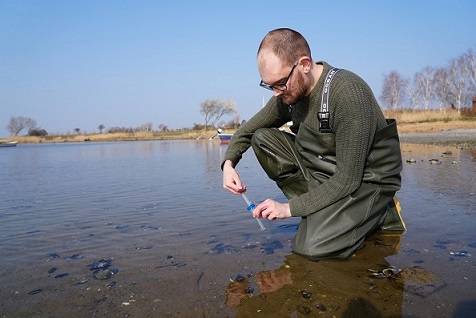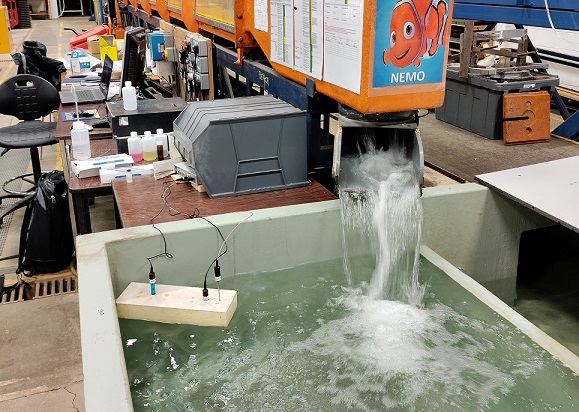
Do Danish oceans release or absorb CO2?
Denmark is surrounded by seawater, which can absorb CO2 and thus reduce emissions to the atmosphere - but seawater can also release CO2. According to biologists Christian Furbo Reeder and Jakob Bang Rønning, we have no idea whether Danish waters absorb or release more CO2. So now they prepare to map CO2 emissions from Danish waters.
CO2 is one of the biggest climate sinners, and everywhere in the world, efforts to reduce emissions are being made.

Also in Denmark, we keep a close eye on our national CO2 balance, and we now know that many types of nature can contribute to the task and thus be worth preserving: forests, salt marshes, bogs, eelgrass beds, etc.
But then there is the seawater, of which we have almost infinite amounts in Denmark: It both absorbs and releases CO2, but we have no idea whether it absorbs the most or releases the most.
What's going on in the sea?
– We know that the world's oceans are responsible for removing up to 40 per cent of man-made CO2, but can they continue to do so? We cannot be sure, because when seawater begins to absorb a lot of CO2, acidification of the seawater kicks in – and that may have consequences for the sea's ability to absorb CO2, Christian Furbo Reeder explains.
Acidification occurs when CO2 reacts with water: In the process, carbonic acid, which dissolves lime, is made, posing a threat to calcareous algae, mussels, crustaceans, corals, etc.
– If acidification reduces the populations of lime-based organisms, there will be fewer organisms to absorb CO2 in the ocean, says Reeder, adding that acidification can destroy entire ecological cycles.
Is there a difference between hot and cold oceans?
– Seawater is not the same everywhere in the world. Warmer water may actually be less effective at absorbing CO2, while cold water may absorb and store more CO2. One can therefore well expect that Danish waters contain more CO2 than warmer waters, says Christian Furbo Reeder.
However, temperature is not the only thing that comes into play: ocean currents also play a big role. South of Greenland, by the Labrador Sea, for example, large amounts of CO2 are absorbed and then transported down to the deep sea via ocean currents.
Factors like the salt content of the water also has an effect, so you cannot "just" take a few water samples in a few places in the world and then think that you get the full picture of the ocean's ability to absorb and release CO2.

To understand the capability of Danish waters - or reduced capability - to absorb CO2, Principal Investigator Carolin Löscher and her group plans to map the CO2 content in Danish waters over a year.
– We will need a lot of water samples, and there is no way, we can collect them all ourselves. That is why we want to involve students from upper secondary schools all over the country to help us take water samples, says Jakob Bang Rønning.
The team expects to start in September 2022 and to collect water samples four times over a year, thus representing all four seasons.
How will the answer help us?
– If it turns out that Danish waters release more CO2 than they absorb, you can actually do something to improve the water's ability to absorb CO2>. We know that adding basic minerals can counteract acidification and increase the uptake of CO2 from the atmosphere, says Jakob Bang Rønning.>
Such an alkaline mineral may, for example, be the common rock type olivine.
– We are currently doing some experiments with this. We crush the stone to powder and pour it into containers with seawater, and we also test it in an indoor, artificial river system. Our hope is that one day you can remedy acidification in vulnerable and waters, he says.
What is it you don't understand

Researchers are constantly learning more about their field - but at the same time there is still a lot they do not yet understand. What is that? And what significance will it have for their research - and for society - to find answers? We ask SDU researchers.
Christian Furbo Reeder and Jakob Bang Rønning
Christian and Jakob are a postdoc and Ph.D. student in Carolin Löscher's research group at the Department of Biology, currently investigating whether climate change can be mitigated by marine geoengineering. This research is supported by the Villum Foundation-